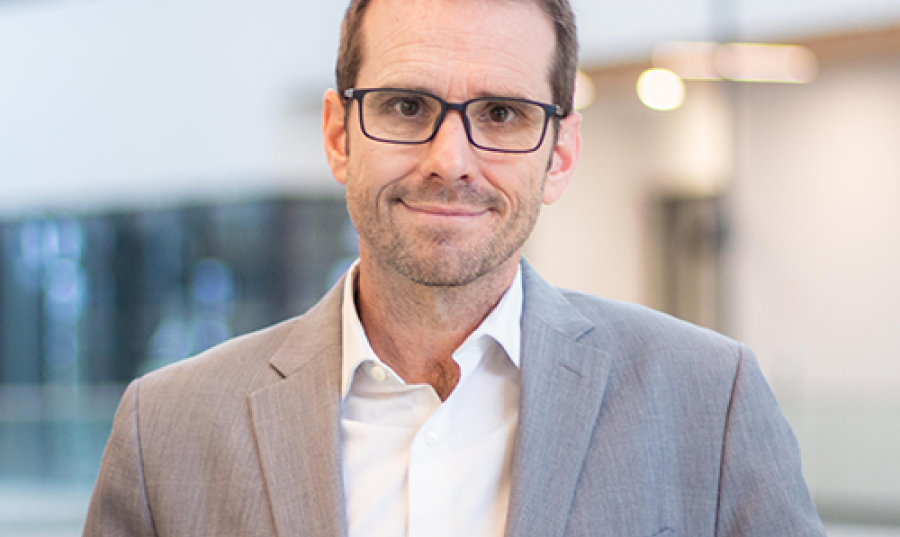Interview with Damon Motors' Dominique Kwong
As the world vies to produce more electric vehicles in light of historic high gas prices, we sit down with Dominique Kwong, Co-Founder and COO of Damon Motors to get a peek into the mind behind the vision of the world's smartest and safest electric motorcycles in Surrey EconomIQ Insights Podcast Episode 03. We discuss the challenges and opportunities in the electric vehicle manufacturing space and what is necessary in developing an electric vehicle ecosystem in Canada. Below are some of the key highlights of the conversation.
Why did Damon Motors choose Surrey?
- Damon Motors was born on the west coast and their founders – Jay and Dom – are proudly Canadian.
- They have extensive experience dealing with locations like US, China and Mexico and places like these were considered when looking at where to set up their manufacturing plant.
- However, as a new brand, establishing their brand and controlling quality is of utmost importance. Having their design team within earshot of their factory is important for making the transition from design to manufacturing.
- Canada also offers unique advantages from an economic and trade partner perspective for the world. They currently don’t have any issues with their overseas vendors.
Supply chain challenges arising from COVID and now the war in Ukraine
- As a new brand, their position and stature are not as established, so it’s all about getting into queue. Getting suppliers to hear them out has been a monumental support, but public support through customers purchasing their motorcycles has been tremendous in helping them establish a foothold with suppliers.
- Currently they have an order book of over 2,000 vehicles, which is over $50 million in book value. They have been building this book since CES 2020 and it’s growing everyday.
- Their VP of Supply Chain was an early member of Dell who established Dell’s supply chain when it first started. A lot of the strategy they’ve employed is also helping them establish their own supply chain.
Plugging into the Damon Motors Supply Chain
- In regards to supply chain, Damon Motors has short, mid and long-term needs.
- In the short term, they are looking to using the local supply chain for small prototype quantities to support development. These include building fixtures and parts that may take too long from an overseas vendor.
- In the mid-term, needs are mostly hovered around the factory. They are going to look local for any fixtures they want in the plant.
- On the vehicle product side, they are establishing their supply chain with their long-term vendors. In order to be cost competitive and also to deal with suppliers at scale, most of these suppliers are overseas in places like Asia or Europe.
- They seek suppliers that have a long history in automotive and overseas is where these players have typically established. Just as automotive manufacturing is very new in BC and Damon is among the firsts, so is the supply chain; it’s a lot of firsts.
- However, there is movement on overseas suppliers looking to set up shop here in BC as the ecosystem grows. One particularly large overseas supplier is looking at building a factory here.
Developing EV Talent Ecosystem
- Personally, Dom feels strongly about giving back to the community – especially the local tech scene.
- They would like to talk to local educational institutions - Simon Fraser University, University of British Columbia and BC Institute of Technology – to establish really good programs that help bridge academic to industry.
- Regional strengths include the universities’ electrical programs, mechanical programs, mechatronics and engineering physics. These are great base programs.
- Metro Vancouver also has a big software pool of talent, but specific auto experience needs to be developed. Damon has additional software products that you won’t find on other vehicles and mobile and cloud infrastructure are still in the infancy stages for the automotive industry.
- Damon would like to help develop programs that more specific to their individual functions and needs. For example, power electronics or battery management systems for large lithium-ion powered systems and chargers, as well as inverter technologies that drive electric motors to do that energy conversion. Further, Damon’s safety features are built on Advanced Driver Assistance Systems and there currently no BC program for that.
- For these types of roles, they are importing talent from California’s Silicon Valley, the east coast of US, and Europe.
Looking ahead - Damon in the next decade
- From a product perspective, Damon wants to see no accidents or deaths on a Damon motorcycle. They aim to be the safest, smartest electric motorcycle in the world.
- From the business point of view, they want to service every corner of the globe with products that are designed and sized correctly for that market. They are looking to introduce vehicles that do things a little different and cause customers to ask why things haven’t been done this way already.
- What sets Damon apart is that they have the flexibility that most other auto companies don’t have, both from a business model perspective and a visionary perspective.
- The motorcycles are delivered as a subscription model, bundling the cost of the vehicle plus insurance plus connectivity. This provides right-sized options for their customer, of which millennials and Gen Z account for a large portion.
- They currently have 160 employees and striving to have 200 by end of the year. Over the next 3-5 years, they’re looking to have anywhere from 300-800 employees.
- The factory will employ hundreds and Damon HQ will also grow as they develop their teams.
---
We also welcome suggestions for topics you would like to hear about. Just give us a shout at invest@surrey.ca.
Media Type
Podcast







